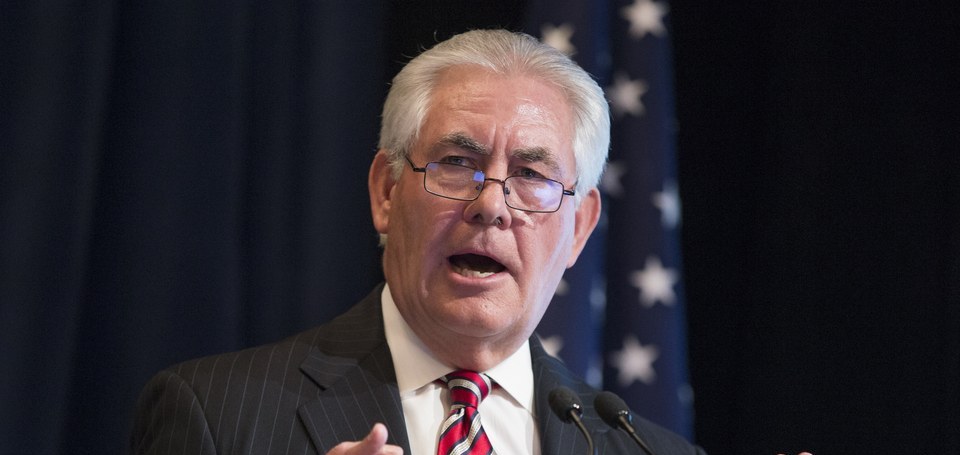Tillerson stands accused
November 21, 2017 | Expert Insights

United States Secretary of State Rex Tillerson has been accused of violating a federal law designed to stop foreign militaries from enlisting child soldiers.
Background
The Child Soldier Prevention Act (CSPA) is a United States federal statute signed into law by President George W. Bush on 3 October 2008. The law criminalizes leading a military force which recruits child soldiers. The law's definition of child soldiers includes "any person under 18 years of age who takes a direct part in hostilities as a member of governmental armed forces."
The goal of the law was to ensure the United States does not conduct any arms trade with countries that are suspected of having child soldiers. The law, however, does provide provision wherein the US President can waive this rule in the national interest. President Barack Obama most recently waived the application of this rule in September 2016 to Burma, Iraq, and Nigeria, and partly to Somalia, South Sudan, Rwanda and Democratic Republic of the Congo.
Estimates suggest that as many as 300,000 child soldiers are active in conflicts around the world. 40% of armed forces (including national armies, militias, gangs, terrorist organizations and resistance forces) in the world use children.
Analysis
In June 2017, media reports emerged that despite recommendations to the contrary by State Department experts and senior US diplomats, US Secretary of State Rex Tillerson planned on removing Iraq and Myanmar from a U.S. list of the world’s worst offenders in the use of child soldiers.
Reuters has now reported that United States Secretary of State Rex Tillerson has been accused of violating a federal law designed to stop foreign militaries from enlisting child soldiers. In a highly unusual move, more than a dozen U.S. State Department officials are formally accusing the Secretary of State of openly and willingly flouting the law and abetting the practice of using children as soldiers.
“Beyond contravening U.S. law, this decision risks marring the credibility of a broad range of State Department reports and analyses and has weakened one of the U.S. government’s primary diplomatic tools to deter governmental armed forces and government-supported armed groups from recruiting and using children in combat and support roles around the world,” said the July 28 memo.
The child soldiers law passed in 2008 states that the U.S. government must be satisfied that no children under the age of 18 “are recruited, conscripted or otherwise compelled to serve as child soldiers” for a country to be removed from the list. It currently includes the Democratic Republic of Congo, Nigeria, Somalia, South Sudan, Mali, Sudan, Syria and Yemen.
”The Secretary thoroughly reviewed all of the information presented to him and made a determination about whether the facts presented justified a listing pursuant to the law,” a State Department spokesperson in response to fresh allegations that Tillerson had violated the law.
“Human Rights Watch frequently criticized President Barack Obama for giving too many countries waivers, but the law has made a real difference,” Jo Becker, advocacy director for the children’s rights division of Human Rights Watch, wrote in June in a critique of Tillerson’s decision. In 2017 alone reports emerged of dozens of children being part of Myanmar’s armed forces. In Iraq, children have died fighting the Islamic State (also known as ISIS) with Iraqi government military units. Becker added that the law helps affect change writing, “Human Rights Watch frequently criticized President Barack Obama for giving too many countries waivers, but the law has made a real difference. When the US withheld military training and financing from the Democratic Republic of the Congo, the government began making progress to end its use of child soldiers. The law influenced Chad to end child recruitment and Rwanda to cut off support for an abusive militia that recruited children.”
Assessment
Our assessment is that given that members within the State Department are themselves questioning the motives and the actions of the Secretary of the State, this matter should be addressed urgently. Congress should be diligent in holding the State Department accountable for its listing process.








Comments